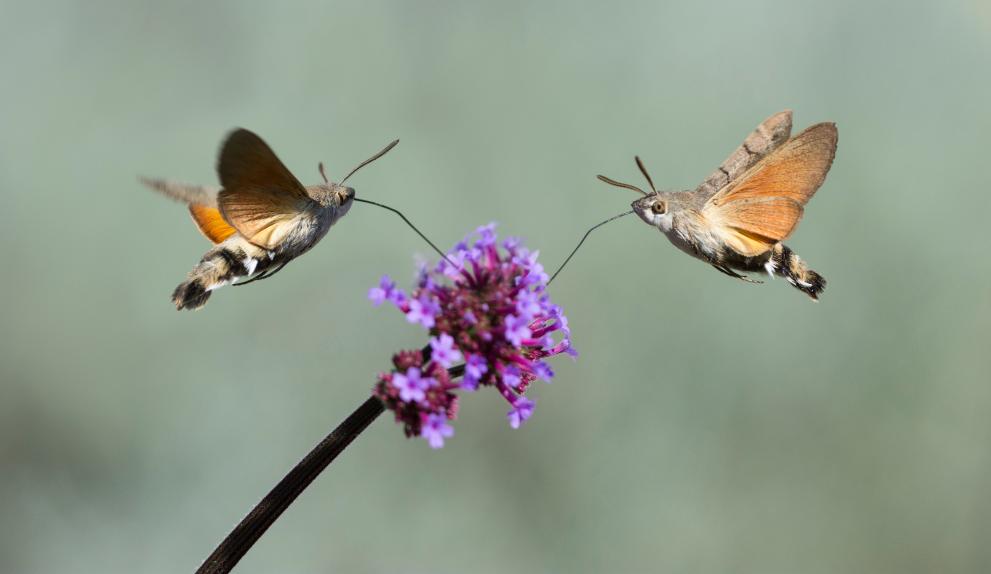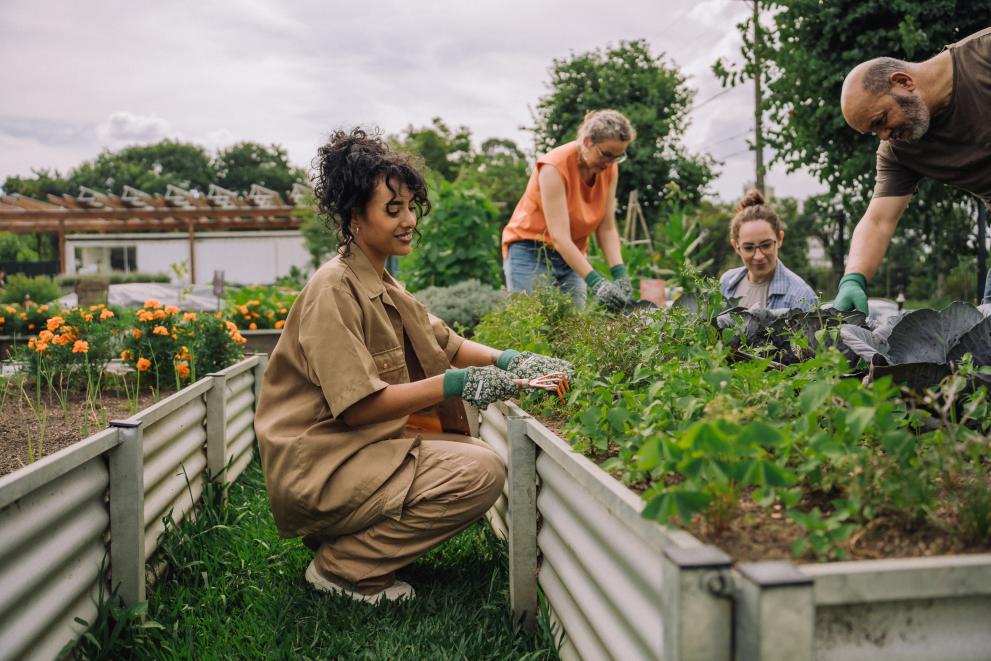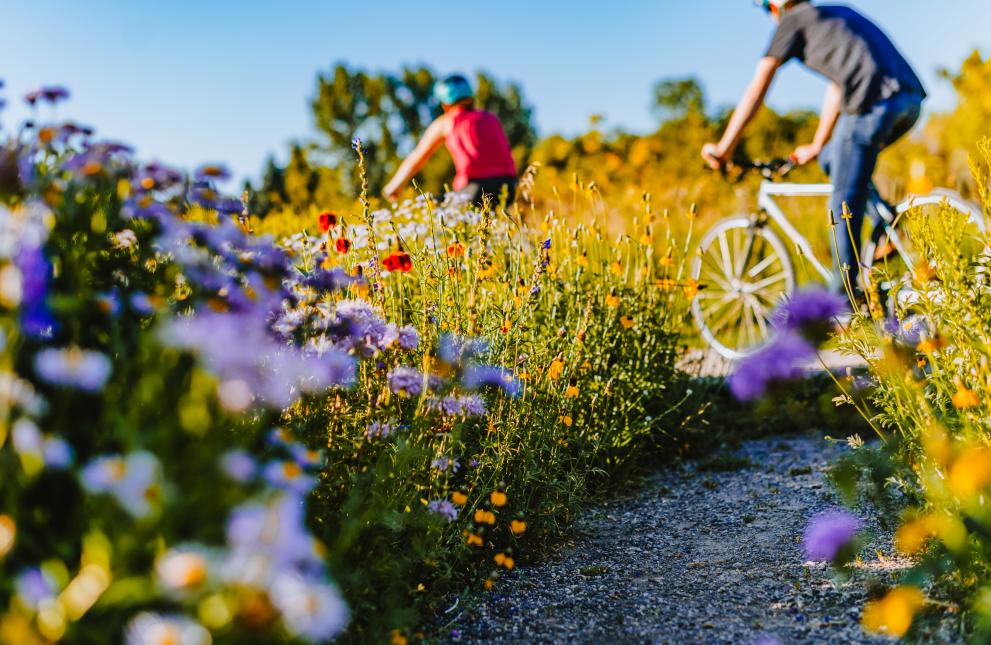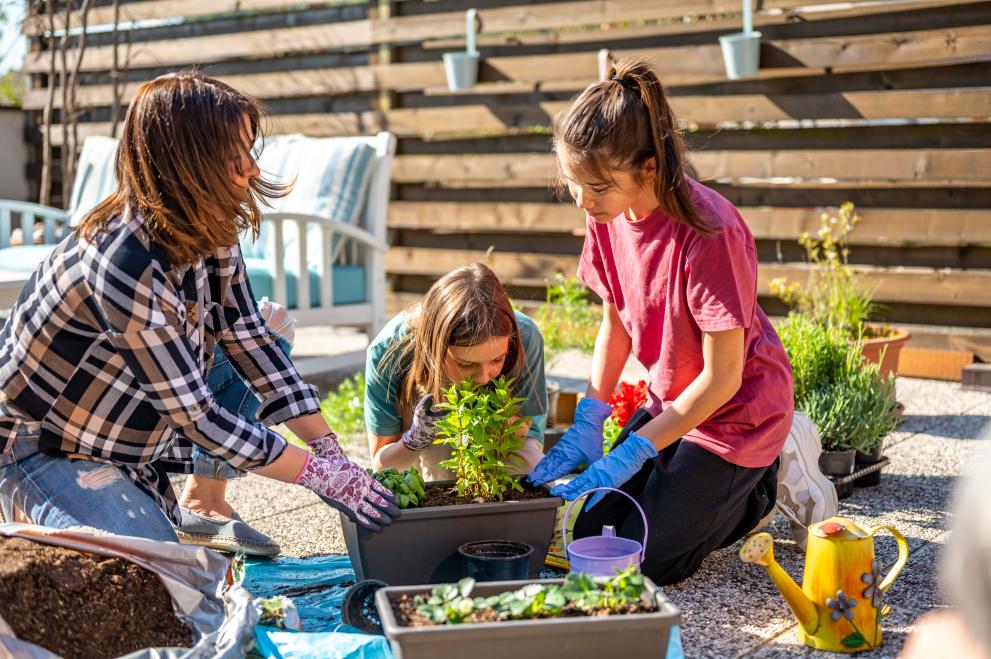Everyone is invited to join the discussion!
Throughout the next several months, this platform will let citizens from across Europe exchange their views and experiences on the decline on pollinating insects to create a truly interactive space of debate.
Everyone is also welcome to contribute reflections on ideas already shared. This way we can take into consideration the widest possible set of concerns, needs and perspectives.
The discussion on the platform will be tied to the deliberations of the Assembly, to make sure the two processes can best cross-pollinate each other.

How do we reverse the decline of wild pollinating insects?
The decline of pollinating insects threatens the availability of food, our future prosperity and nature. The EU institutions as well as many European countries, regions and cities have put in place several initiatives to address it, but many problems remain.
How do we resolve implementation challenges and move forward with concrete actions?
Not an easy question to answer but an ambitious one to debate on! This is the mission entrusted to 100 randomly selected young Europeans aged 18 to 29, who will be joining the Assembly to formulate solutions and policy recommendations from September 2025 to March 2026.
But as this problem affects everybody, we want to open the debate to all citizens.
Read on to find out how you can join the discussion and why it matters.

Why Pollinators matter?
Wild pollinating insects include solitary bees, bumblebees, hoverflies, butterflies, moths – and other flies, wasps, even beetles! These inconspicuous animals are much more important for human societies and nature than their tiny sizes would suggest. Around 4 in 5 crops and wild flowering plants rely on pollinators to transfer pollen and help them reproduce.
Insects are also important for pest control and soil health as well as being a necessary part of the food chain.
When these animals decline – due to land-use change, intensive agricultural management and pesticide use, environmental pollution, invasive alien species and climate change – the impacts ripple through entire ecosystems, undermining biodiversity, food production, economy, and, ultimately, human well-being. Consequently, safeguarding pollinating insects means tackling the complex web of social and environmental challenges.

What’s at stake for citizens?
As our lives are deeply entwined with the fate of pollinators, decisions on what to do should be a subject of a wide public debate.
Food security is a question of existential importance, but what kind of food we produce and how has important cultural and economic consequences. The protection of these insects will also influence the way we manage green areas – from our private gardens, through public parks, to nature reserves. As many other aspects of the environmental crisis, the decline of pollinating insects makes us reflect on bigger questions about the relationship between our societies and the living world.
Young people certainly have a particular stake in this debate, as they will live most of their lives with the consequences of the crisis and decisions we take today – or the ones we don’t take. This is why the Assembly will gather young citizens. But as this discussion is relevant for all of us – this platform creates a space for wider exchange with everybody.

Timeline
- June - September 2025Online debate
Gathering citizens’ concerns, brainstorming ideas and collecting examples
- 26 - 28 September 2025First assembly session - in Brussels
Exploring the topic, learning and setting the direction
- October - November 2025Online debate
Gathering citizens’ concerns, brainstorming ideas and collecting examples
- 5 - 7 December 2025Second assembly session - in Brussels
Discussing options and reflecting on challenges, starting to work on recommendations
- January - February 2026Online debate
Reflecting on the initial proposals of the Assembly
- 6 - 8 March 2026Third assembly session - in Brussels
Finalising recommendations
What to expect from the Assembly?
The young members of the Assembly have started their journey by learning about the key challenges facing pollinator conservation.
But most of their time is dedicated to deliberating over different perspectives, brainstorming solutions and discussing new approaches to tackle the challenges.
To better understand the political and social context, Assembly members engage with politicians, stakeholders and civil society actors.
In the end, they will develop recommendations for EU institutions and other decision makers, as well as relevant stakeholders.
The Assembly is also an opportunity to reflect on the role of youth within the governance of environmental issues at EU level, alongside European institutions, with a long-term vision.

Find out more
Read more about pollinators, their importance and the threats they face in the Pollinator Brief and other information resources.
Find out about the work already being done by the EU.
Discover what our world would look like without pollinating insects: Pollinator Park.


